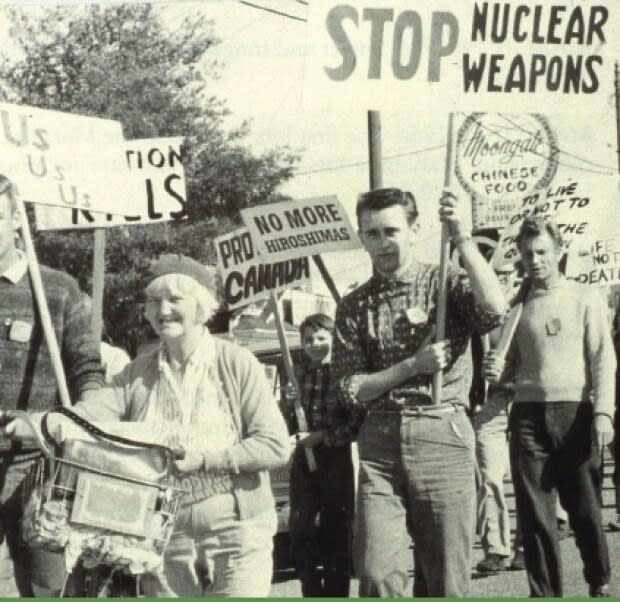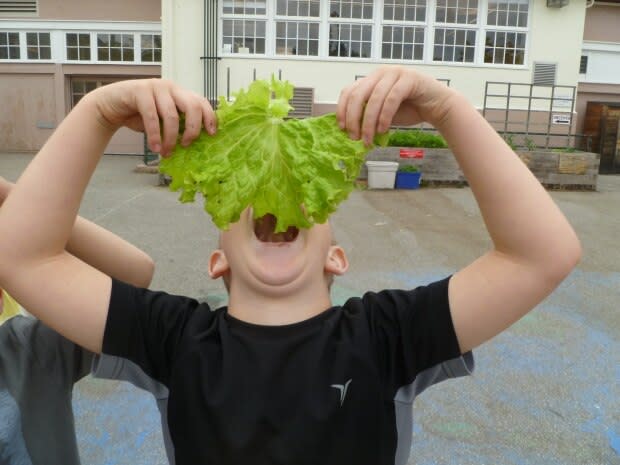Vancouver environmental society hits 50-year mark trying to save planet through local action
For 50 years a Vancouver urban sustainability organization has been trying to save the planet with a tight budget, lots of volunteers, and a willingness to try anything to protect Earth.
SPEC, or the Society for Promoting Environmental Conservation, has evolved from a protest outfit on the front lines of several anti-pollution campaigns to a humble, grassroots agency obsessed with teaching kids how to garden and showing people how to create less waste.
It's among the oldest environmental organizations in Canada. In the last half century, it has scored several environmental wins, including persuading several municipalities in Metro Vancouver in the early 2000s to ban the cosmetic use of pesticides.
But there were disappointing defeats, too, like a failed bid to stop the expansion of the Port Mann Bridge in favour of expanded public transportation.
SPEC co-chair Kate Menzies says the key to the society's longevity has been its willingness to evolve and involve people.
"We're small, we're nimble, we're adaptable and we're sort of welcome to anyone," she said.
After the sting from its failed Port Mann Bridge campaign, SPEC's blue building in Kits — which had been its gathering spot for decades — was condemned in 2011. The organization was homeless.

Dan Rogers, who was on the board at the time, said it was a tough period for SPEC, but instead of floundering it drew its volunteers together and created new energy for a new project.
This time it was an ultra-local one that created community gardens and taught kids how to garden at their schools in hopes of creating a stronger bond with nature and improving awareness about their food supply.
"SPEC had a whole new lease on life," Rogers said about the new direction, even though it took SPEC out of the media spotlight.
The organization currently has 40 active volunteers, around half a dozen paid staff, and a $160,000 budget. Half of that money comes from donations, while SPEC says volunteers contributed 5,000 hours of work in 2018.

Despite the commitment from volunteers and donors, Carole Christopher, SPEC's other co-chair, says now is a tough time to feel hopeful that humans will address climate change.
She's been involved with SPEC since the 1990s.
"It's very hard to say that we've gained hopefulness," she said about the climate crisis. "Are we ever going to actually make it?"
50 years of activism
SPEC began in 1969 after a Coquitlam resident, Gwen Mallard, was dismayed with a provincial decision to allow strip mining in the Kootenays.
That led to several campaigns to limit pollution, while also advocating for rapid transit in the Lower Mainland in 1970.

Volunteers helped clean up an oil spill at Crescent Beach in South Surrey in 1972 and then campaigned for a moratorium on offshore oil exploration the next year.
In 1974 it set up a recycling depot that led to the formation of the Recycling Council of B.C., a leader in Canada for recycling.
Compelling storytelling
Now Christopher and Menzies hope to take SPEC into the future by changing how information about nature, the environment and climate change is shared with people.
They say the old way of presenting scientific information isn't doing enough to inspire people.
"It's easier to spout facts that you've learned than to tell a story that will go a little bit more to the heart," said Christopher.
David Tindall, a sociology professor at UBC, has studied activism and social movements for the past 30 years and says activists need to do more to motivate people to care.
"Storytelling is a much better way of going about this and so that is a more effective way of communicating," he said.
Menzies said she wants to make the organization more inclusive by not alienating those who may feel intimidated by zero-wasters, for example, who may frown at those not doing as they are.
"We have to get people to discuss things and frame the climate crisis in a way that isn't adversarial," she said.
SPEC will hold an action fair next Saturday, August 31, at Vancouver's Riley Park.


